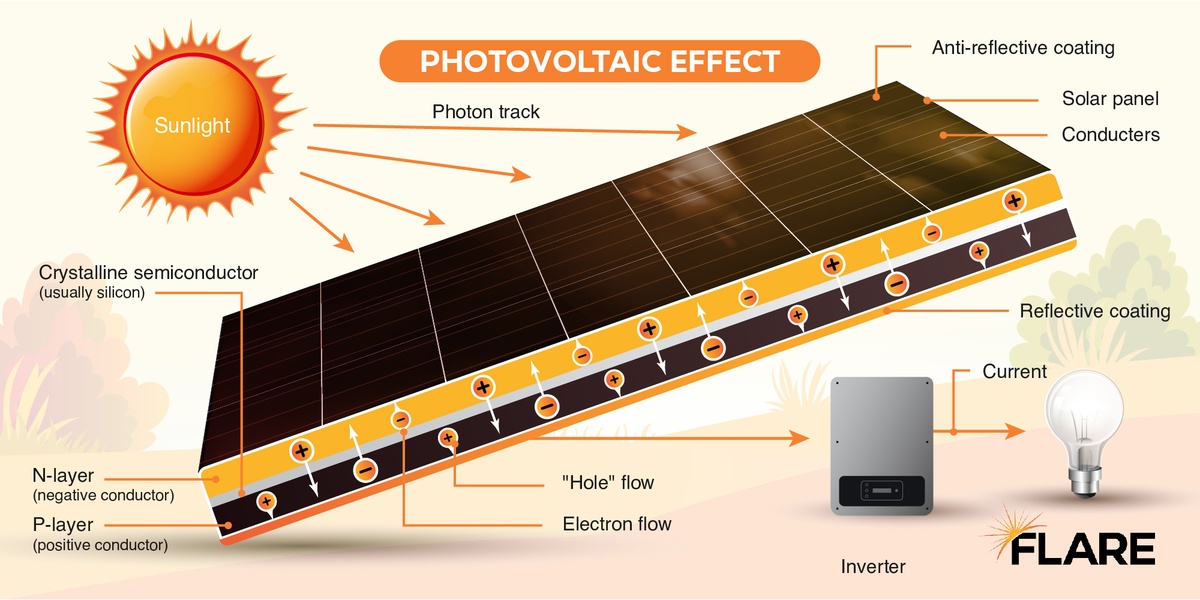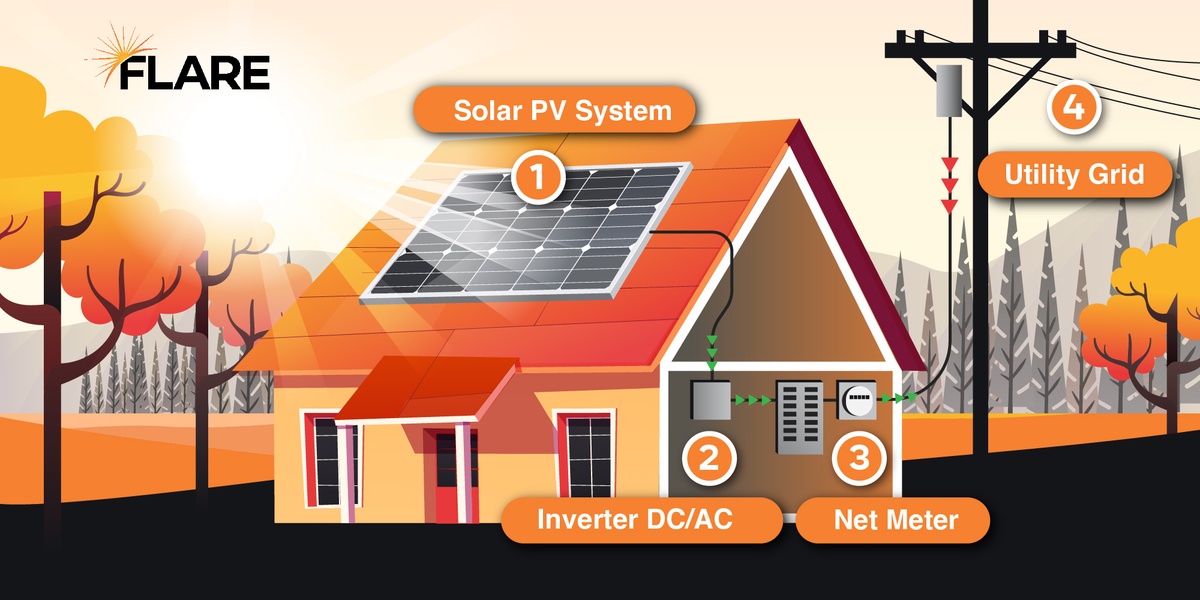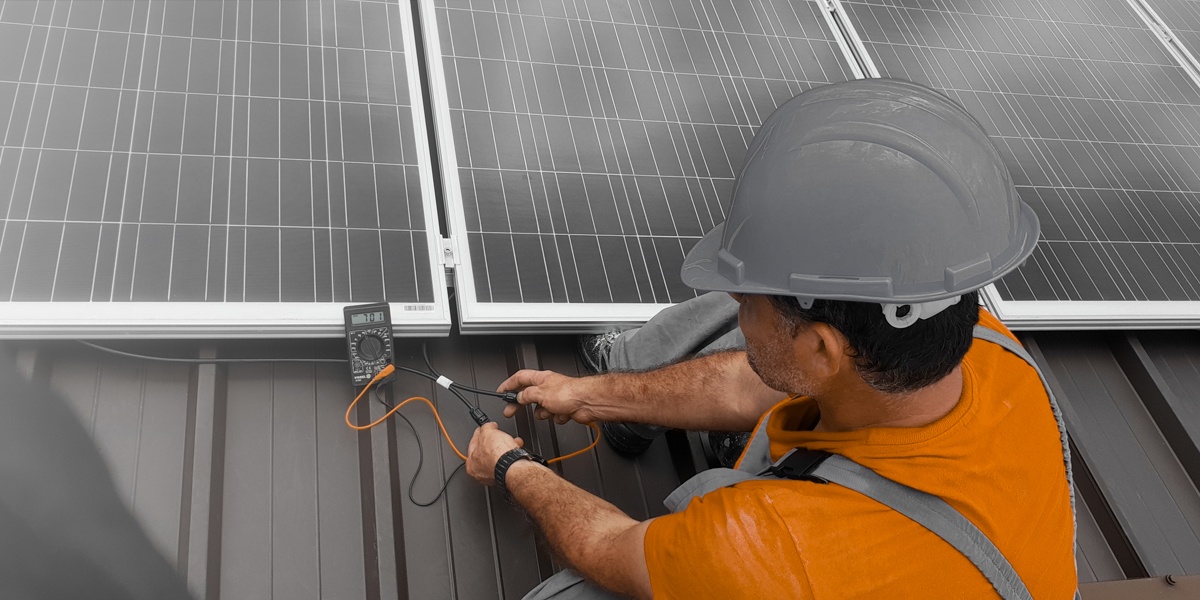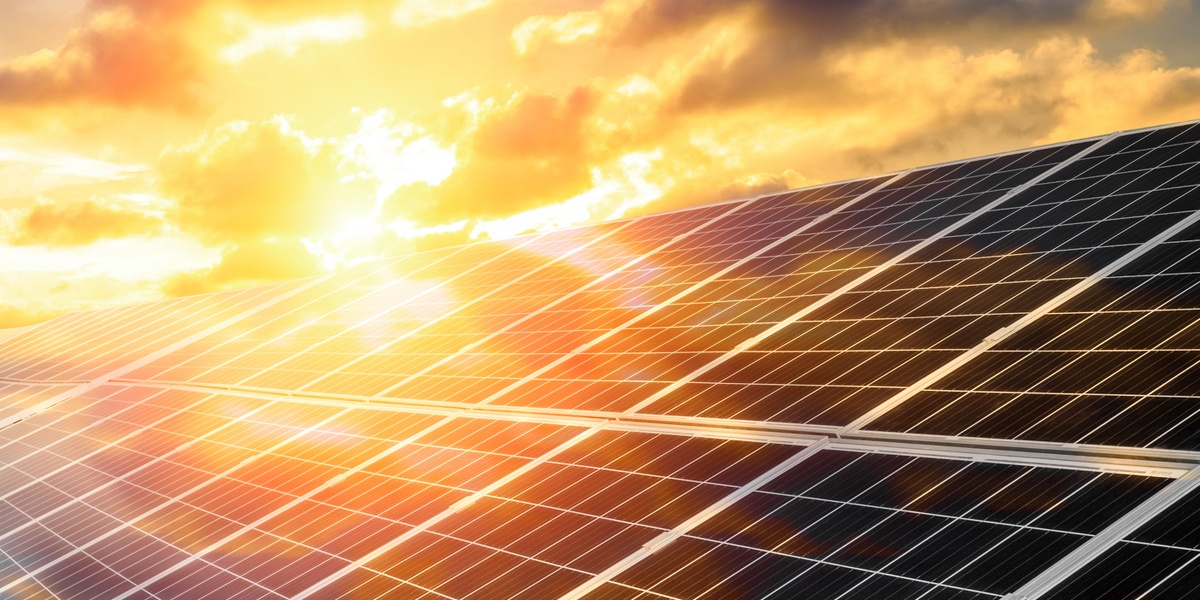How Do House Solar Panels Work? We Answer Your Questions
As the world becomes increasingly conscious of environmental issues and the need for sustainable energy solutions, solar power has emerged as one of the most promising and popular renewable energy sources. Solar panels are at the forefront of this clean energy revolution, harnessing the power of the sun to generate electricity. In this article, we will delve into the inner workings of house solar panels and answer some common questions about how they work.
How Solar Panels Power a Home
Solar panels, also known as photovoltaic (PV) panels, are devices that convert sunlight into electricity. They are typically mounted on the roof of a house or in an open area with maximum exposure to sunlight. Each solar panel consists of several solar cells made of semiconductor materials, such as silicon. When sunlight strikes these cells, it initiates a process called the photovoltaic effect, which converts sunlight into direct current (DC) electricity.
How Does Solar Power Work? What Is the Photovoltaic Effect?

The photovoltaic effect is the fundamental process by which solar panels convert sunlight into electricity. It occurs when photons from sunlight strike the solar cells in the panel, exciting electrons and creating an electric current. The semiconductor materials in solar cells play a crucial role in this process. Silicon, the most commonly used material, has unique electrical properties allowing it to release electrons when sunlight exposes it.
When sunlight interacts with the silicon atoms in the solar cells, it causes the electrons to gain energy and break free from their atoms. These free electrons then flow through the cell’s electrical circuit, creating a direct current (DC) that can be harnessed for various applications.
How Solar Energy Is Used to Power Your Home?

To power a home, the direct current (DC) electricity generated by the solar panels needs to be converted into alternating current (AC) electricity, as most household appliances and electronics run on AC power. This conversion is achieved using an inverter, a vital component of any solar energy system.
The inverter takes the DC electricity from the solar panels and converts it into AC electricity, which can be used to power the lights, appliances, and other electrical devices in your home. Some solar systems also include a net metering system that allows homeowners to feed excess electricity back into the grid, earning them credits or monetary compensation from utility companies.
What Materials Are Used in Solar Panels?

Solar panels primarily consist of semiconductor materials, with silicon being the most widely used. Silicon solar cells are categorized into three types: monocrystalline, polycrystalline, and thin film.
- Monocrystalline cells: These cells are made from a single crystal structure, offering higher efficiency but also higher manufacturing costs.
- Polycrystalline cells: These cells are made from multiple crystal structures, making them more affordable but slightly less efficient.
- Thin-film cells: These cells are made from depositing thin layers of photovoltaic material onto a substrate, providing flexibility and lower costs but with lower efficiency.
How Does Sun Exposure Affect Solar Panel Efficiency?

The efficiency of solar panels is directly affected by sun exposure. The more sunlight a solar panel receives, the more electricity it can generate. Factors that influence solar panel efficiency include:
- Angle and direction: Solar panels perform optimally when facing the sun directly, so their orientation and tilt angles play a significant role in maximizing efficiency.
- Shading: Shading from trees, buildings, or other obstructions can significantly reduce the output of solar panels, making it essential to install them in unshaded areas.
- Temperature: High temperatures can lower solar panel efficiency, which is why solar systems should be adequately ventilated to dissipate heat.
How Does Solar Power Work FAQs
How Does a Home Solar Power System Work?
A home solar power system works by harnessing sunlight through solar panels and converting it into electricity using the photovoltaic effect. The DC electricity produced is then converted into AC electricity through an inverter, making it suitable for powering household appliances and electronics.
Can Solar Power Work at Night?
Solar panels are reliant on sunlight to generate electricity, so they do not produce power at night. However, homes with battery storage can use the electricity stored during the day to power their household needs during nighttime hours.
How Well Do Solar Panels Work on Cloudy Days?
Solar panels can still generate electricity on cloudy days, but their efficiency is reduced. The amount of electricity produced depends on the density of cloud cover and the panel’s orientation. While they may not reach peak efficiency, solar panels can still contribute to a home’s electricity needs on cloudy days.

